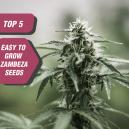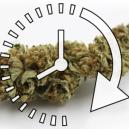What Impact Does Cannabis Have On Motivation?
Published :
Apr 5, 2018
Categories :
Other subjects

Cannabis has been portrayed as a substance that leads to laziness, with popular media cultivating this image. However, many famous high-achievers also partake in the herb. So, what does cannabis actually do to your motivation?
Society’s view on cannabis is changing. The old stereotypical image of cannabis users, as portrayed by countless films and media publications, was the couch-bound hippie. This archetypal image represented laziness, addiction, and an unhealthy and unbalanced lifestyle.
Whether true or not, this image became a widespread and commonly believed judgement. Now that cannabis is more commonplace and legally accepted in many areas, this view is certainly shifting. However, the question does remain; does cannabis decrease motivation?
There have been several studies conducted that revolve around this question, yet no definitive answer exists. After all, it is quite difficult to quantify something that is essentially so subjective.
When it comes to the personality traits and tendencies that govern laziness and motivation, we enter territory that is certainly hard to dissect. However, studies based on how cannabis consumption impacts the reward centre within the brain may offer a clearer picture.
WHAT IS MOTIVATION?
Motivation is essentially an individual’s willingness to take action and bear down upon short-term tasks and long-term dreams. Motivation is key when it comes to facing the constant challenges that separate a person from their desired destination.
When one feels unmotivated, they may have lost sight of their goals, or may display laziness and perhaps sadness and depression. Yet when motivated, a person will display drive, zeal, and passion for their goals and future.
Although motivation may be governed in part by one's personality, it all starts chemically within the brain. The neurotransmitter dopamine, responsible for regulating the reward and pleasure centre within the brain, plays a large role in motivation.
The chemical is heavily involved in emotional responses, and enables us to both visualise rewards and take the necessary steps in order to obtain them.
Dopamine is released when we engage in actions that maintain our survival as human beings. Everytime we take a bite of food or participate in sexual intercourse, the brain releases dopamine as a reward for such behavior, in order to encourage us to do it again and view it as pleasurable behaviour.
CANNABIS AND DOPAMINE
So, what does all this dopamine talk have to do with cannabis affecting motivation? Well, as well as sex, food, and a wide array or narcotics, cannabis also releases dopamine. This means that it most likely has an effect upon motivation.
When a person smokes cannabis, they introduce various cannabinoids into their bloodstream, which go on to interact with receptors in the endocannabinoid system.
Of particular interest is the psychoactive cannabinoid THC, which initiates the cannabis high. THC binds to the CB1 receptor within the brain, which causes a rise in dopamine levels. This effect is reported to last for around 2 hours after THC has been consumed. However, when repeated over long periods of time, long-term changes within the reward centre of the brain may occur.
So, what does this chemical interaction mean when it comes to motivation?

DOES CANNABIS DEMOTIVATE?
Due to THC causing a short rise in dopamine levels, it may seem like common sense to assume that the herb stimulates motivatation; yet in the long-term, it may not sustain these effects. One consideration is that THC offers users instant gratification. If all it takes to get a hit of dopamine is to sit on the couch and smoke a spliff, then perhaps some users don’t see the need to go out of their way and achieve something big to be happy.
Hypothesising aside, some research has been conducted regarding the motivation levels of cannabis users.
During the 1970s, when stigma surrounding cannabis was still rife, researchers synthesised a term detailing the loss of drive associated with cannabis use: “amotivational syndrome”. However, more recent analysis conducted in 1995 has found that cannabis smokers with low motivation may actually be dealing with depression instead of so called “amotivational syndrome”.
Another way that cannabis may reduce motivation is by potentially altering dopamine production. A 2014 paper published within the journal Biological Psychiatry states that cannabis is associated with reduced dopamine synthesis capacity, meaning that prolonged use may lower dopamine levels and lend to lack of motivation and possibly long-term memory issues.
THE COUNTERARGUMENT
The science shows that it may be possible that cannabis decreases motivation. However, considering research is quite limited and there are so many variables to take into account, it would also be fair to consider anecdotal accounts.
Just because a person smokes cannabis does not make them less motivated by default. There are numerous examples of this; many celebrities, athletes, and high-achievers choose to smoke cannabis and do so whilst maintaining extremely high levels of work output.
Personality also plays a large role when it comes to cannabis and motivation. Some people are more oriented to constantly push themselves towards success and have an incessant sense of innate motivation. Others prefer to take life more slowly and find fulfilment in the simple elements of life.
CONSIDER STRAIN
The majority of cannabis smokers will be familiar with the varying effects that different cannabis strains offer. Indica strains are known to initiate a relaxing and chilled body high that leaves the user stoned and calm. On the other hand, sativa strains are famous for the cerebral and energetic head highs that they offer. When in search of a boost in creativity, focus, and alertness, sativa strains are definitely the go-to option.
Although cannabis may reduce domanine production when used over time, if used in a balanced and healthy way, the short term dopamine boost that it provides may lead to a surge in motivation in some users.






































